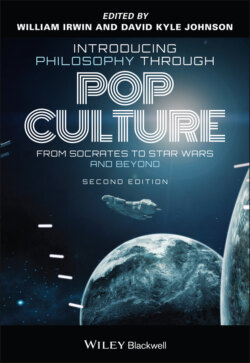Читать книгу Introducing Philosophy Through Pop Culture - Группа авторов - Страница 41
Summary
ОглавлениеThe nineteenth‐century English mathematician and philosopher W.K. Clifford famously argued that it is always wrong to believe anything upon insufficient evidence, even if such beliefs provide comfort and hope. Such beliefs weaken the mind while preventing the search for truth and understanding. This chapter explores Clifford's view through South Park's resident voice of reason, Stan Marsh, as he takes on the crazy and the credulous.
A wise man, therefore, proportions his belief to the evidence.
– David Hume
People believe all sorts of things for all sorts of reasons; sadly, few people pay attention to reasons based on logic, rules of argumentation, theory, or evidence. And the inhabitants of South Park are no different. But why should we think critically and rationally? Why does it matter? What harm is there in believing something if it makes you feel good, provides you with comfort, or gives you hope? If evidence is lacking, so what?
In his essay “The Ethics of Belief,” William Kingdom Clifford (1845–1879), an English mathematician and philosopher, explained the potential harm of believing just anything. “Every time we let ourselves believe for unworthy reasons, we weaken our powers of self‐control, of doubting, of judicially and fairly weighing evidence,” he wrote, concluding that it's “wrong always, everywhere, and for anyone, to believe anything upon insufficient evidence.”1
Amid the exaggerated craziness and illogic of the citizens of South Park, we're sometimes treated to flashes of insight and well‐thought‐out ideas that surprise us. Stan shows off his critical thinking skills as he takes on TV psychics, various cults, and unsupported religious beliefs in a way that would've made Clifford proud. In this chapter, we'll examine how Stan exposes the frauds and the harm they bring to people, while defending scientific thinking and a healthy skepticism.
